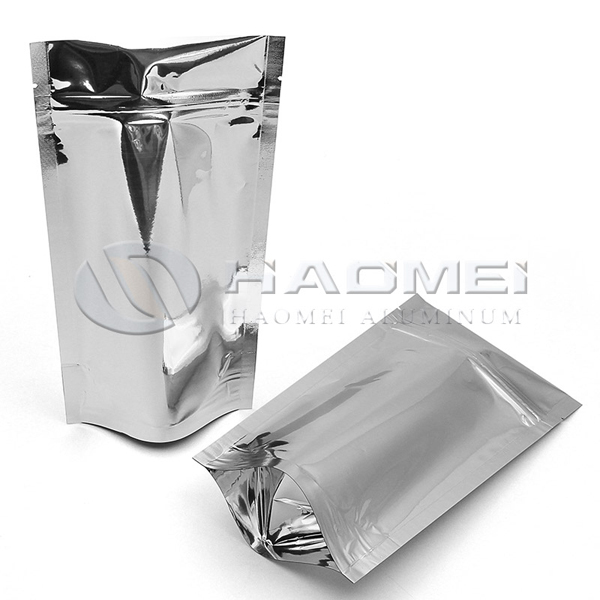Aluminum foil is usually used for packing meat products, dried fish, aquatic products, bacon, roast duck, roast chicken, roast pig, quick-frozen food, ham, etc. because of its light, glossy, strong reverse, strong insulation, good air separation, moisture and temperature adaptability, high temperature and low temperature , strong light shielding and excellent moisture resistance. Bacon, sausage, cooked meat, pickled vegetables, bean paste, spices and incense, durability, security flavor, color retention.
Aluminum foil bag has good humidity resistance, insulation, light, high permeability and beautiful surface function, water vapor transmission rate of <0.015 g/ (M2? 24h) >, also with the heat sealing function of vacuum packaging, composite aluminum foil bags appearance opaque, silvery white, anti shine in temperature less than 38 DEG C, storage humidity is less than or equal to 90% in the environment. Composite aluminum foil bag used in food packaging, aluminum foil bag is with other high isolation material by dry composite made.

Features of aluminum foil bags:
a) Green material, Non benzene and ketone printing.
b) High barrier, moisture proof, resistance retort and puncture.
c) Strong heat seal strength and strength of lamination.
d) Low friction.
e) Up to 10 colors
f) Advanced testing equipment to ensure quality and performance.
When making a aluminum bag, the size of the piece of foil you start out with varies based on the desired final size of your foil bag. For a more heavy-duty bag, two pieces of foil can be layered one on top of the other. Start by folding the foil in half, giving it a little crease. This crease is the base of the bag. Next, fold the sides, creasing along the edge with each fold. Each side should be folded at least three times to make sure you to get a seal inside the bag. Turn the bag around, and repeat the folds on the opposite side. Now, you have a foil bag with an opening on the top. This can be filled with rosemary, potatoes, carrots … anything you’d like.



